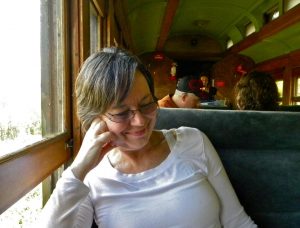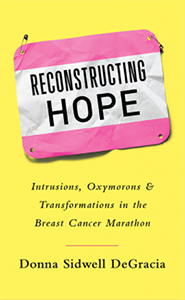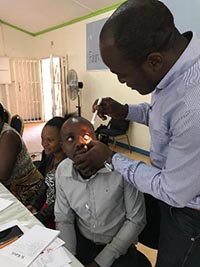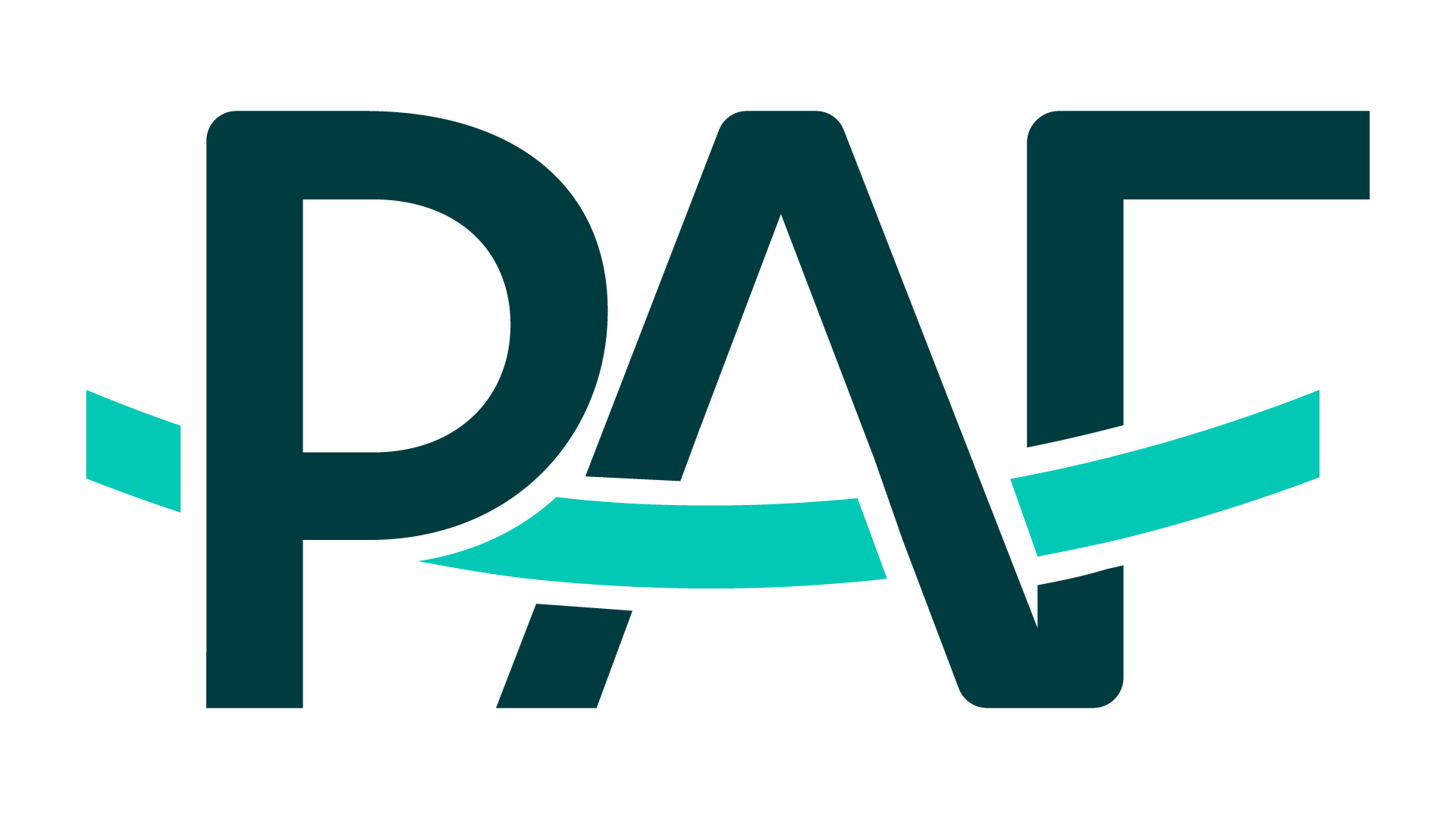PA Educator and Author Shares Insights
 Donna DeGracia, MS, PA-C, is a PA and educator from Richfield, MN. She has a background in family practice and urgent care, and has worked in a variety of clinical settings, including several community clinics serving immigrant, refugee, and other underserved populations. She is an associate professor of PA studies at St. Catherine University.
Donna DeGracia, MS, PA-C, is a PA and educator from Richfield, MN. She has a background in family practice and urgent care, and has worked in a variety of clinical settings, including several community clinics serving immigrant, refugee, and other underserved populations. She is an associate professor of PA studies at St. Catherine University.
Donna has been part of two teams that have received grant funding from the PA Foundation for global outreach initiatives. She and her colleagues at Augsburg College PA Program received a Global Outreach Grant in 2006 to support a mobile clinic providing basic care to rural areas in Nicaragua. In 2017, her team at St. Catherine University was awarded Global Outreach Grant funding for a project designed to improve the lives of children with disabilities in Zambia. Donna says the grant funding helped make both initiatives sustainable and community centered, allowing local participants to continue their work and international partners to exit when appropriate.
In addition to her roles as clinician and educator, Donna holds another title: author of three books. She recently published her third book, “Reconstructing Hope: Intrusions, Oxymorons & Transformations in the Breast Cancer Marathon,” inspired by her experience as a two-time breast cancer survivor. In it, she offers support for people living out any stage of their breast cancer marathon through personal stories and medical insights.
Donna has generously offered to donate one-half of the purchase price of the book to the PA Foundation using code PAF4GOOD.
We spoke with her to learn more about what inspires and motivates her in her clinical practice and academic career, her experience with the writing process, the impact of her cancer journey on her role as an educator, and her motivation for giving back to the Foundation through her book sales.
Q: What first inspired you to become a PA? In your PA practice and in your work as an academician, what do you find most motivating and inspiring on a day-to-day or ongoing basis?
A: I was a Peace Corps volunteer from 1972-1975 and spent some of that time working in a local health center. I was trained to work with leprosy and tuberculosis but ended up working in maternal and child health. It was during that time that I learned about the PA profession which seemed like the perfect way to continue learning and doing what I loved.
During my clinical career I have had the opportunity to work in community clinics and provide care for people who might otherwise not receive care. The work is challenging but extremely rewarding. It is humbling to be let into places in patients’ lives that are almost sacred places.
In my academic career I have had the privilege of working with amazing students, many of whom are now colleagues in either clinic or PA education. Watching their development is extremely rewarding. I have also co-developed the innovative integrated curriculum for the St. Catherine University MPAS program, one of the few successful integrated curriculums in PA education. Every time a clinical preceptor or employer compliments our students’ preparation or critical thinking skills, I feel a surge of pride.
Q: Tell us about your new book, “Reconstructing Hope: Intrusions, Oxymorons & Transformations in the Breast Cancer Marathon.” How did you decide to write the book? As an author of three books in total, what have you learned through the book writing process?
 A: The book, “Reconstructing Hope: Intrusions, Oxymorons & Transformation in the Breast Cancer Marathon” grew out of my own experience with breast cancer and the realization that, even as a seasoned clinician, I knew very little. I set out to learn more through interviewing people whose lives had been touched by breast cancer including patients, family members, and healthcare professionals. Their stories, poetry, and insights, combined with basic information about breast cancer, dictated the content and the title of the book. I wanted the book to be applicable to patients and medical providers and to reflect the humanity of disease.
A: The book, “Reconstructing Hope: Intrusions, Oxymorons & Transformation in the Breast Cancer Marathon” grew out of my own experience with breast cancer and the realization that, even as a seasoned clinician, I knew very little. I set out to learn more through interviewing people whose lives had been touched by breast cancer including patients, family members, and healthcare professionals. Their stories, poetry, and insights, combined with basic information about breast cancer, dictated the content and the title of the book. I wanted the book to be applicable to patients and medical providers and to reflect the humanity of disease.
The writing process is a long one and the outcome is often not what you anticipated at the onset. It is important to work with a team of professionals who can help you navigate the process of writing, publishing, and marketing. You have to be super invested in your topic and committed to seeing your work come to fruition. It has to be a labor of love.
For me, writing is a way of processing life experiences. I learn as much about myself as I learn about my topic. All of my books come from areas of my life that needed processing. Writing helps me to continue my personal growth.
Throughout my cancer journey, there were many teachable moments. I tried to use those moments to reinforce lessons about communication, compassion, and patient-centered care. I am very open about my own experience as a patient and use it to augment the clinical medicine aspects of the disease.
Q: How has your cancer journey influenced your role as a PA educator?
A: There are so many ways to answer this question. I have had two rounds of breast cancer. Through both, students knew of my diagnosis and supported me through treatment. The second time around, two students were actually doing clinical rotations with members of my care team and were involved in the initial stages of my care. Throughout my cancer journey, there were many teachable moments. I tried to use those moments to reinforce lessons about communication, compassion, and patient-centered care. I am very open about my own experience as a patient and use it to augment the clinical medicine aspects of the disease.
This year students have formed a book club focused around health equity. They have selected my book for one of their discussions. Breast cancer may not be the usual topic for a health equity discussion, but there are many examples of disparity and the social determinants of health embedded in the stories in the book that can provide discussion points.
Q: You’ve been a recipient of PA Foundation grant funding for global outreach projects. What did receiving that grant funding mean to you, and how did it impact the execution and outcomes of your projects?
 A: I received two PA Foundation grants for global outreach projects, one for Nicaragua and one for Zambia. The first was for a mobile clinic that provides basic care to rural areas that have no other access to care. The second was for a project to improve the lives of children with disabilities in Zambia. Both provided support to make these projects both sustainable and community centered, allowing local participants to continue their work and giving us (international partners) a way to step back and exit when appropriate. I believe that our role as a rich nation should be to empower our global partners and to support their efforts towards self sufficiency and sustainability. The PA Foundation grants have allowed me to inject help, where needed, towards local endeavors.
A: I received two PA Foundation grants for global outreach projects, one for Nicaragua and one for Zambia. The first was for a mobile clinic that provides basic care to rural areas that have no other access to care. The second was for a project to improve the lives of children with disabilities in Zambia. Both provided support to make these projects both sustainable and community centered, allowing local participants to continue their work and giving us (international partners) a way to step back and exit when appropriate. I believe that our role as a rich nation should be to empower our global partners and to support their efforts towards self sufficiency and sustainability. The PA Foundation grants have allowed me to inject help, where needed, towards local endeavors.
The PA Foundation grants have also been learning tools for students. The Zambia grant, in particular, was written by students. The ongoing project in Zambia has been supported by student work in subsequent years. For example, this year PA students created a series of webinars for medical providers in Zambia to increase knowledge and awareness around common childhood disabilities. These webinars will be used to augment the training workshops that were initiated with the help of the original grant.
Q: You have generously offered to donate a portion of your book proceeds to the PA Foundation. Why did you select the Foundation as a partner/beneficiary in this effort? What motivates you to support the PA Foundation, in particular, as one of your philanthropic priorities?
A: Our profession is evolving from a purely clinical profession to one of leadership. The PA Foundation supports both research and global outreach, both of which are essential for the leadership role. I am near the end of my career as a clinician and educator but I see supporting the PA Foundation as a way to continue my work and the growth and development of the profession.
The standards of our profession dictate that we view health and healthcare in a holistic way. My book provides a holistic view into one disease. By partnering with the PA Foundation, I am hopeful that the book will be read by more PAs and that the stories included in the book will promote a patient-centered approach to care.
My two PA Foundation grants were for global outreach. Global health has always been a passion of mine. I grew up as the child of missionaries in a war torn country where healthcare was scarce. Later I was a Peace Corps Volunteer. I have seen smallpox. I have spent time in a leper colony. I have seen the devastation of AIDs and TB. It is crucial that PAs are involved in global health and that PA students gain global perspective. I do not know a better way to promote those goals than through contributing to the PA Foundation. Donating proceeds from my book is the best way I can support this important work.
By partnering with the PA Foundation, I am hopeful that the book will be read by more PAs and that the stories included in the book will promote a patient-centered approach to care.
Q: What would you say to other PAs who are looking for ways to give back?
A: You don’t have to live in a mansion and write checks for tens of thousands of dollars to make a difference. Give what you can. Give from your heart and your talents. Be creative. Use your talents, your interests, and your passion to make a difference.

